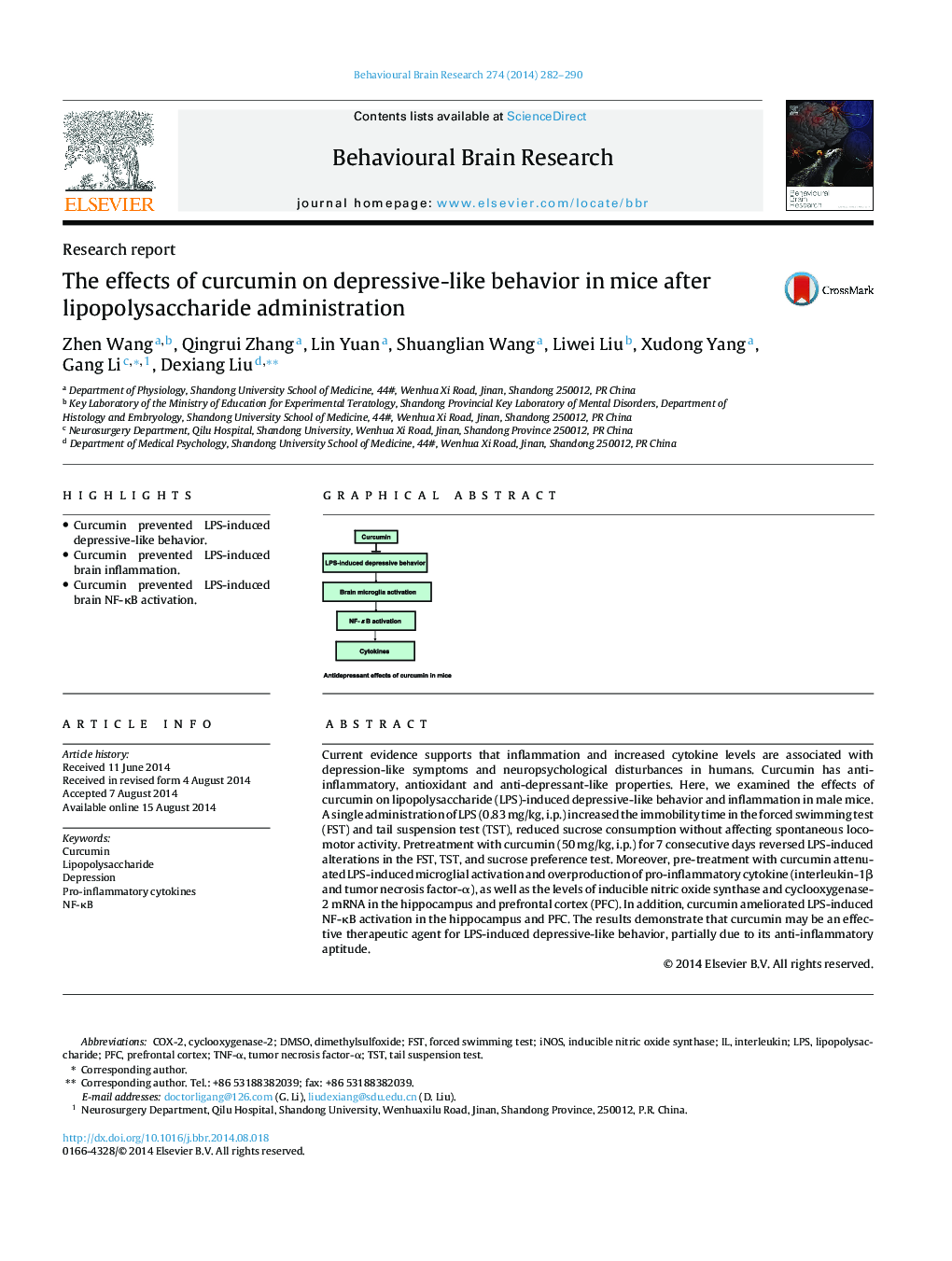| Article ID | Journal | Published Year | Pages | File Type |
|---|---|---|---|---|
| 6257764 | Behavioural Brain Research | 2014 | 9 Pages |
â¢Curcumin prevented LPS-induced depressive-like behavior.â¢Curcumin prevented LPS-induced brain inflammation.â¢Curcumin prevented LPS-induced brain NF-κB activation.
Current evidence supports that inflammation and increased cytokine levels are associated with depression-like symptoms and neuropsychological disturbances in humans. Curcumin has anti-inflammatory, antioxidant and anti-depressant-like properties. Here, we examined the effects of curcumin on lipopolysaccharide (LPS)-induced depressive-like behavior and inflammation in male mice. A single administration of LPS (0.83 mg/kg, i.p.) increased the immobility time in the forced swimming test (FST) and tail suspension test (TST), reduced sucrose consumption without affecting spontaneous locomotor activity. Pretreatment with curcumin (50 mg/kg, i.p.) for 7 consecutive days reversed LPS-induced alterations in the FST, TST, and sucrose preference test. Moreover, pre-treatment with curcumin attenuated LPS-induced microglial activation and overproduction of pro-inflammatory cytokine (interleukin-1β and tumor necrosis factor-α), as well as the levels of inducible nitric oxide synthase and cyclooxygenase-2 mRNA in the hippocampus and prefrontal cortex (PFC). In addition, curcumin ameliorated LPS-induced NF-κB activation in the hippocampus and PFC. The results demonstrate that curcumin may be an effective therapeutic agent for LPS-induced depressive-like behavior, partially due to its anti-inflammatory aptitude.
Graphical abstractDownload high-res image (69KB)Download full-size image
